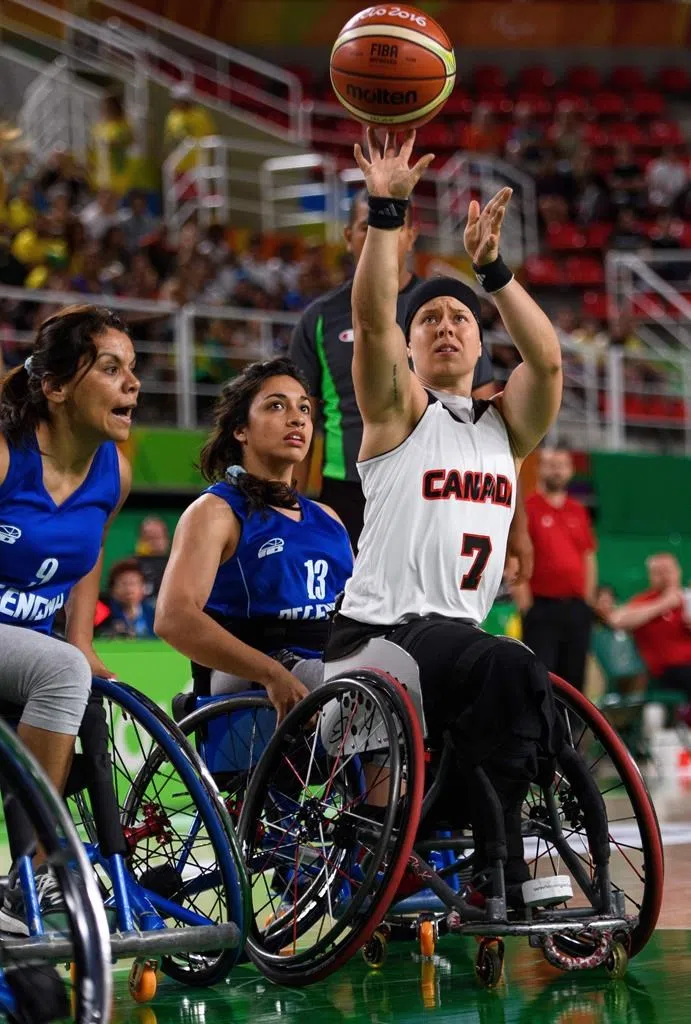
Canada’s basketball medal hopes dashed at Paralympics with loss to Netherlands
RIO DE JANEIRO — One by one, they wheeled off the court, fighting back tears in a losing battle.
Canada’s women’s wheelchair basketball players had their dreams of a Paralympic medal dashed — again — with a 78-60 quarter-final loss to the Netherlands on Tuesday.
And now Canada, once so thoroughly dominant in the global wheelchair game, will leave the Paralympics without a medal in the event for the first time in nearly 30 years.
“It’s not a good feeling. It happened, the same thing in London (in 2012). . . It’s just a pretty awful feeling,” said Cindy Ouellet, pausing to gulp back tears. “Sorry.”


